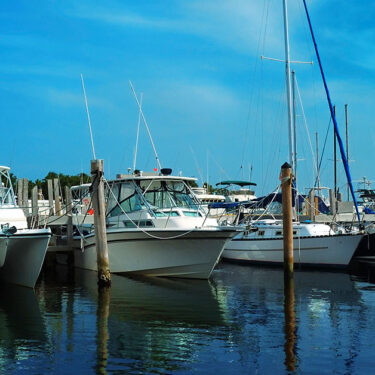Millions of honeybees tragically died on a hot airport tarmac in Atlanta after a series of mistakes that occurred while the bees were being shipped from California to Alaska. According to reports, the 800-pound shipment of bees could not be accommodated on its original Delta Air Lines flight due to an aircraft change that rerouted the bees to Atlanta, where a delayed connection meant the 200 crates of bees were left outdoors in the heat and removed from their coolers. While some of the bees were rescued by local beekeepers, most had already died when help arrived, the Atlanta Journal-Constitution reported.
On April 29, a spokesperson for Delta Air Lines told the Associated Press in a statement that the company had apologized to the beekeeper who sent the bees and took “immediate action” to prevent future incidents. The loss comes at a time when commercial pollination services have become more important amid a dwindling population of honeybees, The New York Times reported.
“It is quite tragic, in all honesty,” said Michael Dearness, Senior Underwriter, Freight Services Leader, Burns & Wilcox, Toronto, Ontario. “Shipment delays or an airline changing or re-routing a flight is something that I certainly do see happening more and more often, just given the state of the supply chain currently.”
These changes can have disastrous consequences, particularly when live animals are involved, said John Gambino, Cargo Manager, RB Jones, Marine & Energy, New York, New York. Anyone shipping animals or involved in their transit should have special expertise in this area and ensure they have the right insurance policies to address the risks.
“Animals are much more sensitive to transit than luggage, and they cannot communicate their discomfort,” he said. “It is really about picking the right shipping company and an insurance broker and carrier that have the expertise.”
Insurance can cover cargo damage, loss; may exclude live animals
Typically purchased by the owner of the shipment, Ocean Cargo Insurance can cover the loss or damage of cargo due to external forces such as fire, severe weather, water intrusion, or theft. When a cargo ship carrying luxury vehicles caught fire and sank in February, total damage to the vehicles was estimated at about $335 million, CNN reported in March.
Cargo theft in the U.S. hit a five-year high in 2020, Heavy Duty Trucking reported last April, and was also on the rise in Canada, with the Canadian Trucking Alliance estimating that total cargo theft losses cost about $5 billion per year, Global News reported in September of 2020.

Absolutely any goods that are in transit on a truck, rail, plane or boat have some exposure to loss or damage, and all of that cargo has the ability to be insured on an Ocean Cargo Insurance policy.
“We have seen quite an uptick in theft and pilferage claims,” Dearness said. “We also see a lot of water damage, especially with ocean shipments, and also things like truck rollovers, train derailments, and rough handling.”
Featured Solutions
Live animals may be excluded from a standard Ocean Cargo Insurance policy, but an insurance broker specializing in cargo can tailor solutions for these situations, Dearness said. “In this specific [honeybee loss] situation, the bees were being transported as cargo and certainly could have been insured on an Ocean Cargo Insurance policy that would be taken out by the cargo owner themselves,” he said.

Animals are much more sensitive to transit than luggage, and they cannot communicate their discomfort. It is really about picking the right shipping company and an insurance broker and carrier that have the expertise.
These owners should be especially careful when selecting a shipping provider, Gambino said. “When you are shipping animals, you have to take into consideration the temperature in the cargo hold, the humidity, and the level of carbon dioxide,” he said. “It takes an expert. The most important thing is you want your animal to arrive safely, so you should not be cutting corners. You want to interview the individuals in charge of it, and talk to those in logistics to make sure they know what they are talking about and are in compliance with international regulations on the shipment of animals.”
Shippers can face liability for damage to cargo
While Ocean Cargo Insurance is the most important policy for the owner of cargo to carry, those involved in the shipment process may need to purchase Cargo Liability Insurance or Errors and Omissions Insurance. These policies can cover damage or loss of cargo that is directly linked to a company’s shipping mistake. Liability for the honeybees killed due to shipping errors, for example, could fall back on the airline or any freight forwarder that may have been hired to manage the shipment.
“They certainly could have some liability,” Dearness said. “The Cargo Liability Insurance policy or Errors and Omissions Insurance policy would protect them in the event they are liable for the loss to the cargo or if they made an error. The Ocean Cargo Insurance protects the owner of the cargo, and the Cargo Liability Insurance is to cover the liability another company is accepting in either arranging or transporting the cargo.”
Problems outside of a transportation company’s control, such as delays at a port, would not typically be covered by these policies.
“If they cannot get into a port because the authorities will not let the ship in, that is not their fault and they just happen to be at the wrong place at the wrong time. If a vessel runs out of fuel, causing the electricity to go out, and it is because they did not stop for fuel when they could have, that is clearly an error,” Gambino explained.
Even if a shipping provider is liable for a loss of cargo, however, they may not pay for the full value of the goods. An airline, for example, may only cover cargo based on a dollar amount per pound, limiting the amount an owner could get back in the event of a loss.

Cargo at rest is cargo at risk. … If it is sitting in a yard for a month waiting for a truck to show up, there is much more time for something to happen.
“If you own something, you need to find out who is providing the all-risk first-party Ocean Cargo Insurance: the seller or the buyer,” Gambino said. “It is really never going to be the carrier. That is where they have to look at the terms of purchase. If it is silent on the insurance, you have to ask about it.”
Dearness agreed, explaining that the greatest potential for an uninsured loss in this industry is when a cargo owner assumes the shipping carrier is responsible for their goods in the event something goes wrong. “Far too often, we see situations where the cargo owner has an expectation that because they have given the goods to a reputable company, they will be made whole, when in fact that is not the case,” he said. “Too many individuals across all industries believe that.”
Delays can put cargo at greater risk for theft, other issues
Overall, shipping delays are currently “way up” and getting worse, Gambino pointed out. Today’s ongoing supply chain challenges are unlikely to resolve soon, with continued pandemic-related lockdowns in China, and issues related to the war in Ukraine, expected to disrupt global trade into the summer months, Bloomberg recently reported. New data shows that shipping delays between China and major ports in the U.S. and Europe have quadrupled since late March, CNN reported on May 6.
While Ocean Cargo Insurance policies often exclude lost revenue due to shipping delays, these hold-ups could put cargo at greater risk for theft and other perils that can be covered by insurance.
“Cargo at rest is cargo at risk,” Gambino emphasized. “As long as it is moving, chances are a thief cannot get their hands on it. If it is sitting in a yard for a month waiting for a truck to show up, there is much more time for something to happen.”
The same goes for temperature mistakes that may arise during a prolonged wait. In 2018, a study in the peer-reviewed journal Pharmacy and Therapeutics reported that billions of dollars of pharmaceutical products are stored improperly in shipment or delayed beyond their shelf life.

Goods in transit are susceptible to damage. A cargo owner can do everything right to protect themselves, but there is still risk and unfortunate things do happen in the shipping industry.
It is more important than ever for companies to stay closely attuned to the state of international politics and to consider diversifying their supply chain, Gambino noted. “As a shipper, you always need to follow international politics; something could be legal today and illegal tomorrow,” he said. “There is also always the logistics risk that goes along with the politics. If China shuts down because of COVID or there is a fire or earthquake, the importer may need to source their imports from more than one place. They should have a diversified supply chain.”
Understanding your purchase and shipping agreements, and where you stand with insurance, is “a good place to start,” Dearness added.
“There should be no issue as long as everybody understands [what is covered by insurance] and has the opportunity to seek an Ocean Cargo Insurance solution,” he said. “For any businesses that have not suffered losses previously and may not think they require insurance, even in the last two years or so there have been several instances in the news, including the Suez Canal situation, where your cargo can get damaged even if you do everything correctly. Goods in transit are susceptible to damage. A cargo owner can do everything right to protect themselves, but there is still risk and unfortunate things do happen in the shipping industry.”






